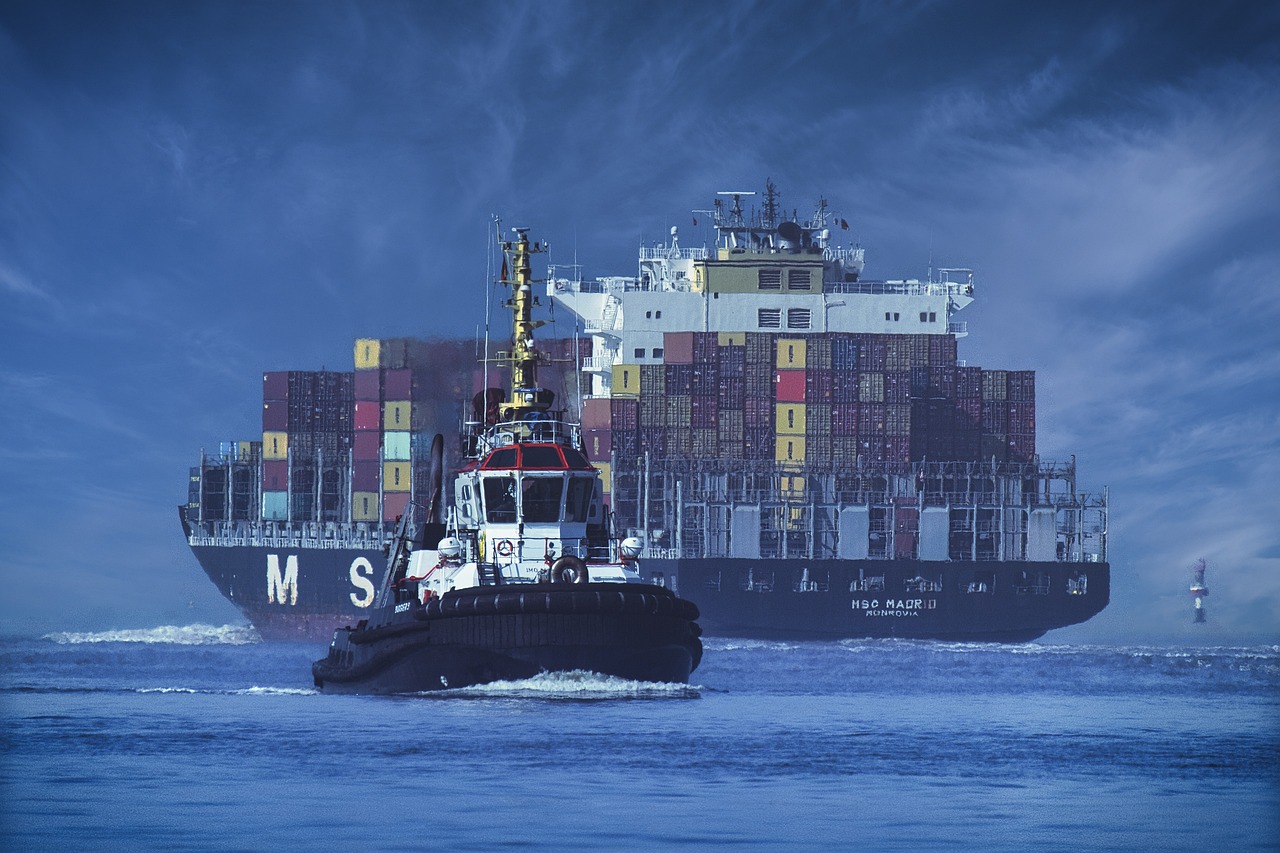
“Despair. Hopelessness. Frustration. Sadness”: board game professionals fear for industry’s future under “reckless” Trump tariffs – but GAMA plans to fight back
Punishing import tariffs threatened by US president-elect Donald Trump could lead to a “great collapse” of the US board game industry, with publishers, distributors and retailers of all sizes facing the threat of going under, professionals within the industry have told BoardGameWire.
Trump has vowed to impose tariffs of up to 20% on all imports to the US, rising to 80% on goods from China – where the vast majority of board games are manufactured before being shipped around the world.
But companies across the board game supply chain tend to work on very small margins – meaning that huge extra cost is likely to be passed on to board game players through vastly increased prices.
Under the proposed tariffs, a $50 board game manufactured in Europe and shipped to the US would become $60 – but one imported from China would see its price rise to $90 in order to absorb the extra costs.
Pandemic Legacy co-designer Rob Daviau, who is Chief Restoration Officer at Unmatched and Thunder Road: Vendetta publisher Restoration Games, posted on BlueSky after Trump’s election to say, “Every meeting I’ve had today has been an existential crisis about our industry.”

He told BoardGameWire the mood in the industry was “Despair. Hopelessness. Frustration. Sadness”, adding, “Games take many years to design, send to the factory, and get to market. No one can pivot right now to deal with games arriving next year.
“People are just hoping that none of this is actually going to happen. But the threat of it happening is causing a lot of ripples.
“I am a pessimist and today is a hard day to see the silver lining. I hope I’m wrong on everything I’m saying. But, if those tariffs are implemented, I see a great collapse in the hobby gaming market in the US. Or publishers only sell direct to consumers, which would affect game stores. Or games become cheaper quality or higher price or both.
“There’s no good outcome for all of this. Just various bad outcomes. There are others I’m talking to who think it won’t be that bad. I guess New England dourness is winning out today.”
“This will result in job loss and in companies going under”
Colby Dauch, who bought back his company Plaid Hat Games from Asmodee in 2020, told BoardGameWire, “Trump speaks recklessly. His plans are often not well considered before he announces them. I really hope that this is the case here.
“Sweeping tariffs are nonsensical and many US companies and consumers will push back against them.
“The purpose of a tariff is to make a foreign manufactured product more expensive so that it struggles to compete with a domestically produced version of that same product, propping up that domestic manufacturing industry. I believe valid arguments can be made for and against this kind of directed tariff.

“However, it is self-evident that putting a tariff on all goods, including those that America lacks the infrastructure to produce in the quantity it consumes will only result in those products becoming more expensive, putting a greater strain on the American consumer.
“Consumers already have less money to spend on non-necessities as a result of global inflation. This is already impacting hobby board game sales negatively.
“Add on top of that an increase in price on all sorts of goods, including the board games themselves, and far more people will need to reduce the amount they spend on board games. This will result in job loss and in companies going under.”
He added, “Some might speculate that when household finances get strained, it leads to people staying home more and doing less, and that might lead to seeking out cheaper longer-lasting forms of entertainment, and that board games could fit that bill.
“If a trend like that were to happen, we’d be looking at an increase in the number of people seeking out board games, and the ones they will seek out first will be the most popular ones, as they are the most visible.
“So, in such a scenario, the biggest companies with the most well-known board games will be the least negatively impacted.
“Many board game hobbyists, who regularly seek out new and novel board game experiences, would certainly see their budgets impacted.
“So smaller companies full of creative team members focused on creating new content, seem like they would be the hardest impacted. That is very much Plaid Hat.”
Dauch said that companies would inevitably try to get creative in order to survive, with a switch to direct-to-consumer sales through avenues such as Kickstarter one possible way to maintain margin without imposing skyrocketing prices.
He said, “Perhaps some publishers will cut out distribution and retail altogether, or just have reduced prices for their direct sales so that people seek them out. If that becomes a strategy we could see retailers impacted the hardest.
“This could result in stores closing and expediting the already quickly moving shift to online being the dominant way that most goods are acquired.”
Crowdfunding Concerns
But crowdfunding is not a panacea for the situation, with publishers on the platform still facing heavy costs from the tariffs.
Judson Cowan, who raised more than £630,000 on Kickstarter this summer for his game Deep Regrets, said in his latest update to backers that the tariffs could prove “financially devastating” to his business.
He said to backers, “The games are set to arrive in the US in roughly mid-February, which will hopefully be too early in the administration for any tariffs to have been enacted, but I cannot say for certain.
“If the tariffs ARE imposed by that point, what might happen is that when the games arrive at the US port, I will be charged potentially up to 60% of the value of the games to import them to the US (that’s about $100,000), which would be financially devastating.
“It will not impact your receipt of the game, but it may potentially affect my ability to sell games in the US in the future. And possibly my ability to continue making games at all.
“I am aware of the situation and I am planning for this and have funds to cover costs. However, the unpredictability of the current political climate makes it difficult to plan for what might happen.
“I cannot fully rule out a scenario where increased freight charges and levied tariffs become too great for the company to afford and I cannot successfully import the games to the US. I will do everything in my power to ensure the games get to US backers.”
John Stacy, the executive director of 1,700-member board game trade organisation GAMA, told BoardGameWire, “Tariffs will have a major negative impact on our industry and slow the growth and cause economic hardship for our members.”

GAMA was part of a 200-strong coalition of associations which banded together to fight Trump’s much more limited suite of tariffs in 2019 – and Stacy said his organisation had been meeting informally with other groups concerned about trade issues for the past few months.
He said, “In the last round we were mostly spared, with some tariffs around various components and accessories such as card sleeves – but by and large we were exempt. I do not expect that to be the case this time unless we fight very hard to be excluded.”
“The board and I are taking this issue very seriously and have allocated money in our 2025 budget for advocacy efforts to engage our members understand the impact these proposals will have on our industry and have them work with us to connect with their federal legislators to educate them and their staff about our industry and the impact tariffs will have on it.
“In addition, we are exploring contracting a lobbyist to help boost our message in Washington DC. We understand that we will not be able to completely eliminate tariffs given how passionate the next administration seems to be about them, but through hard work and diligence we will do our best to mitigate the harm it will cause our industry.”
Manufacturing Quandary
Thomas Koegler, the CEO of board game giant Asmodee, said this week that his company was “monitoring the situation very closely”, and hinted that the business would look to shift manufacturing away from China in favour of factories in the US and Europe.
He said, “We do not own any manufacturing capabilities – we work with partners, and our partners are present in the US, in Europe and in China. So we have, and we will, look into options to balance our manufacturing according to whatever political decisions will be taken.”
But board games are largely manufactured in China for two powerful reasons – low cost, and expertise – and simply deciding to move manufacturing to the US from China does not mean there is the infrastructure or know-how available to satisfy demand, or create games at affordable prices.
Daviau said, “There are some factories. They will see an uptick in business. But they tend to be factories that deal with larger print runs for larger publishers.
“Those are also games that are usually focused on having low prices. Many of those factories can’t easily do a smaller print run at better quality.
“Factories could open in the US to do that but it would take four to seven years, maybe 10. But which time there wouldn’t likely be any demand for it as those publishers would’ve gone out of business, or focused their business on the rest of the world.”
Stacy agreed. He said, “Unfortunately, it is very difficult to shift manufacturing of games to the US as this country lacks the infrastructure and trained workforce to make that happen affordably and efficiently.
“If the government wants to subsidize building new factories and manufacturing capacity, it’s important to understand that takes time and a lot of money to bring these new factories online.
“Publishers will of course look to move their printing to other countries beside than China, but those options are also limited and would be subject to shifting tariff policy depending on the whim of whoever is in charge of a country at the time.
“It’s a mess trying to figure out what the costs to produce a game will be for 2025.”
BoardGameWire approached a string of China-based board game manufacturers for comment on the situation, but did not receive a single reply.
“Tariffs have a tendency to escalate quickly”
Stacy added, “The proposed tariffs will hurt everyone in the industry regardless of size. As the cost to make and import games into the US goes up, there will be a corresponding increase of the retail price of the product to compensate.
“Since our industry does not operate in a vacuum, we have to acknowledge that most goods from China will be going up in price due to the across the board nature of the proposed tariffs. That means that people will have less disposable dollars to spend on games.
“As a result, they will probably be buying fewer games to compensate for the higher costs of products from China. This is a concern that we need to factor in our business plans even if games and accessories were exempt for the proposed tariffs.
“It is simple economics, when a price goes up, people buy less of that product or service. Competition for existing market share will go up as companies will be chasing what dollars are available. As such publishers will probably scale back on the number of games they are publishing until prices stabilize or come down.
“This reduction will mean publishers will be hiring fewer creators and artistic talent, which means fewer jobs for those professionals. And if the designers are creating their own game and hoping to get it signed with a publisher that will be harder as well as many will not be in the market for new games that they cannot get made affordably.
“For Kickstarter focused and smaller publishers, they will have to really understand their true costs and include consideration for tariffs in the price they are asking if they wish to bring a game to market. The truth is that given what they may have to charge, that game will not be backed or available for a while, if ever.
“Fewer games on the market mean less selection for retailers to offer to their customers, who will probably buying fewer games anyway. The cycle feeds on itself and leads to a slump in sales and less profit across the board for everyone.
“Tariffs this high are going to put companies out of business and lead to less profit for those who remain. Its not good by any measure.
“Another thing to consider is that tariffs work both ways. Trump has proposed a universal baseline tariff of 20% for all products imported into the US. Other countries will react and raise their tariffs as well making it harder for our members to export their games to those markets.
“Tariffs have a tendency to escalate quickly. If you are thinking about expanding into a new market, this increase may give you pause until this issue shakes itself out and you know what the extra costs this will have on your plans.”







Over reaction maybe? When Trump was President before a large number of exclusions to the tariffs were made
https://www.politico.com/story/2019/09/19/hundreds-of-chinese-goods-exempted-from-trumps-tariffs-1753322
It would be awesome to see some reshoring of board game manufacturing. It would likely be much better for the environment to have these products manufactured here.
As well, the change would force some innovation that could lead to new and unknown efficiencies.
I am very curious how this will all play out. But I am skeptical of the commentary. Why? Given the political proclivities as judged by the framing and narrative choices I see here, there’s some clear political motivation to take the most pessimistic outlook.
Orange man bad.
Agreed!
[…] the games industry as American trade policy (regardless of administration) gets more hawkish. If the impending ‘Trump tariffs’ come in a little lower than the current rhetoric from Trump suggests, then they’ll actually be […]
[…] board games are made, were being talked about by then President-elect Donald Trump last November, stoking fears of a “great collapse” of the US board game industry. So far those tariffs have only reached 10%, but ongoing sabre-rattling from Trump and tit-for-tat […]
[…] response in the industry to those figures tended towards either despair for the industry’s future, or pragmatic disbelief that the threats were anything other than bluster designed to intimidate […]
[…] full scale of those threats was realised on April 3, when Trump more than doubled those China tariffs to 54%, alongside […]